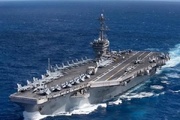After a series of revolutions erupted in several countries in western Asia and north of Africa which was named as Arab Spring or Islamic Awakening, Libya was no exception. Thousands of people were inspired and encouraged by Tunisia revolution to go to streets and demonstrate against a long-ruling dictator Muammar Gaddafi.
Soon after the rise of protests, western countries, particularly European states, came to the scene and urged military involvement in a country which at the time used to be a sovereign state. The interference began with imposition of no-fly zones and further continued with air strikes against Libyan government forces and finally Colonel Gaddafi was toppled… and just the question was raised as who should replace him?!
Post-Gaddafi power vacuum has for five years left the country suffering instability, insecurity, civil war and the last consequence but certainly not the least, growth of terrorist groups in the African country.
Foreign Affairs Committee report determines U.K. policy in Libya before and since the intervention of March 2011 was founded on ‘erroneous assumptions.’Now, the report by U.K. parliamentarian committee has shed more light on the mistakes the European states had made. "This report determines that U.K. policy in Libya before and since the intervention of March 2011 was founded on erroneous assumptions and an incomplete understanding of the country and the situation,” highlights the opening of the summary of the official report.
According to the official documents, the British involvement was based on the pretext of defending civilians against Gaddafi loyal forces. Though there is no doubt Gaddafi forces and loyalists faced protesters with brutality and iron fist, the report suggests that the threats were taken too serious and intentionally exaggerated.
“We have seen no evidence that the U.K. Government carried out a proper analysis of the nature of the rebellion in Libya. It may be that the U.K. Government was unable to analyze the nature of the rebellion in Libya due to incomplete intelligence and insufficient institutional insight and that it was caught up in events as they developed. It could not verify the actual threat to civilians posed by the Gaddafi regime; it selectively took elements of Muammar Gaddafi’s rhetoric at face value; and it failed to identify the militant Islamist extremist element in the rebellion. U.K. strategy was founded on erroneous assumptions and an incomplete understanding of the evidence.”
In other words, David Cameron’s government exploited threats on civilians as an excuse to proceed with its own agenda of regime change in Libya. As the report has concluded, Cameron and newly-founded National Security Council chaired by him have been so obsessed with military option and regime change that they had failed to review options for political solutions.
Such ‘erroneous assumptions’ are reminder of what happened back in 2003 when the United States and Britain provided fabricated accusations against Iraq of stockpiling chemical weapons and WMDs. The false claims convinced neither the U.N. Security Council nor the public opinion of the world, but finally led to an unsanctioned invasion on Iraq which left thousands of people dead, hundreds of thousands injured and disabled and many more people displaced.
But aside from humanitarian aspects of Iraq war consequences, the illegal action by George Bush and Tony Blair left Iraq with a long-lasting turmoil turning the country into an incubator of terrorist groups. It seems that the history has repeated once again in Libya and what the U.S. and U.K. did in Iraq was further done by the United Kingdom and France in Libya. Numerous reports and official documents are now available showing that invasion on Iraq was one of major reasons behind formation of terrorist groups such as DAESH (also known as ISIL or ISIS) in Iraq.
As the recent report has proved, invasion on Libya was another irresponsible act by Britain which has now left a country with terror cells and extremist armed groups. It is no surprise that the civilians who were supposed to be protected by British military campaign in Libya in 2011, are now still under more threats from terrorist groups and suffering more insecurity.
As the United States and George Bush were obsessed with the idea of occupying Iraq – as a piece in puzzle of Washington’s plan to encircle and put pressure on Iran – David Camron’s Britain was also so occupied by the idea of toppling Gaddafi that he missed to set plans for afterwards:
“Other political options were available. Political engagement might have delivered civilian protection, regime change and reform at a lesser cost to the U.K. and Libya. The U.K. would have lost nothing by trying these instead of focusing exclusively on regime change by military means.
Having led the intervention with France, we had a responsibility to support Libyan economic and political reconstruction. But our lack of understanding of the institutional capacity of the country stymied Libya’s progress in establishing security on the ground and absorbing financial and other resources from the international community.”
The report also admits that U.K.’s actions in Libya were part of an ill-conceived intervention, the results of which are still playing out today, whereas former PM Cameron is first to be blamed.
“We note former Prime Minister David Cameron’s decisive role when the National Security Council discussed intervention in Libya. … It should be informed by the conclusions of the Iraq Inquiry and examine whether the weaknesses in governmental decision-making in relation to the Iraq intervention in 2003 have been addressed by the introduction of the NSC.” The report has concluded and asserts that “through his decision making in the National Security Council, former Prime Minister David Cameron was ultimately responsible for the failure to develop a coherent Libya strategy.”
Now, the point is that this chain of events and ill-conceived interventions is not halted and similar incidents are happening in the region, and could have turned into a nightmare in Syria if it was not for pro-Syrian government countries.
As invasion of Afghanistan and Iraq had led to formation of extremist groups, the same mistake in Libya led to same result and the war-torn country turned into a safe haven for terrorists and extremist groups. U.S. support for Mujahedin in Afghanistan of 1980s brought about Taliban and Al Qaeda, Washington’s covert operations in Libya’s Benghazi backfired and led to killing of American ambassador and U.S. citizens in the African country, and according to legal documents and also Former Director of Defense Intelligence Agency Michael Flynn Americans ‘willfully’ allowed ISIL and Al-Nusra rise in Syria and Iraq “to weaken Bashar Assad in Syria.”
Meanwhile, since 5 years ago when unrest erupted in Syria and the U.S. has been supporting the same terrorist groups against Assad, Barack Obama administration believed in removal of Bashar Assad. In fact, along with many other failed stances his administration took on Syria, Obama had famously asserted that “Assad must go!”
Within a short span of time in contemporary history and in a rather small region, the course of events in 21st century has proved how wrongfully western countries have been addressing the situation in the Middle East. If resistance front had not insisted on supporting the nation and legitimate government of Syria, now another Libya had been shaped in this already volatile region. ‘Erroneous assumptions’ of western politicians in name of human rights and democracy could have made the situation in Syria even worse with a power vacuum after Assad.
Unless western countries decide to stop ‘ill-conceived interventions’ in Syria and Iraq, Libya turned into another Iraq and even worse, Syria might also become another Libya and even worse.The previous evaluations of Iraq war in 2003 and the recent parliamentary report in Britain must bring western politicians to their senses to avoid loss of more lives in Syria and region. Military solution to Syria while U.S. is obviously supporting Al Qaeda-affiliated terrorist groups such as Al-Nusra and ISIL, or weakening of Syrian legitimate government can only backfire on European countries and the U.S. by becoming target to more terrorist attacks on their lands, while leaving hundreds of thousands of people subject to displacement and killing in Syria and Iraq. The same would happen if American plan to disintegrate either Iraq or Syria is realized too.
Unless western countries decide to stop their ‘ill-conceived interventions’ and honestly seek a solution to crisis in Syria and Iraq, as the experience of Afghanistan and Iraq reoccurred in Libya and turned the African country into another Iraq and even worse, Syria might also become another Libya and even worse.
Hamid Reza Gholamzadeh has done his MA in North American Studies and his focus has been on US policies towards the Middle East. He is also English Chief Editor of Mehr News Agency.
























Your Comment